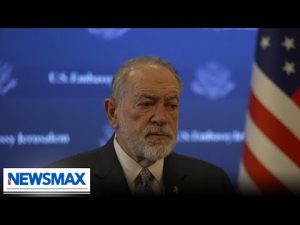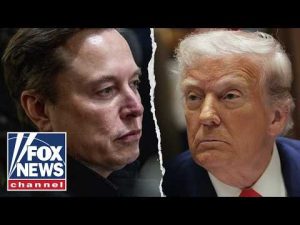In the world of politics, there’s often a tug-of-war between perception and reality. Those in power, or seeking it, often find themselves tangled in a web of numbers, projections, and the ever-elusive “baseline.” Take, for instance, the current brouhaha over the so-called “big, beautiful bill” that claims to be the fiscal savior of our time. Some are raising their eyebrows at the estimates about its impact on the national debt. The Congressional Budget Office and other watchdogs predict it could balloon the debt by trillions, numbers that would make anyone’s eyes water. But, of course, numbers tell a story, and like all stories, they are open to a tad bit of interpretation.
Russ Vo, the director of the Office of Management and Budget, paints a different picture. According to him, these watchdogs are, ironically, barking up the wrong tree. He suggests they’re shackled to an artificial baseline that assumes Washington’s spending spree never ends, kind of like assuming a super-size soda doesn’t come with super-size consequences. He claims that when you remove these shackles, you instead find that we’re dealing with a fiscally responsible bill that actually trims down deficits and debt by $1.4 trillion. It’s like finding out spinach isn’t just good for you, but it tastes like chocolate too. If only it were so simple.
Then there’s the matter of the CBO, which has been accused of not seeing the bigger picture. In one corner, we have Russ Vo accusing them of missing the forest for the trees, likening their forecasts to someone trying to tell us last year that the Biden administration’s border security bill would reduce the deficit. Anyone with a speck of understanding of the border issues would laugh their socks off at the irony. Yet, the CBO maintains they’re only doing their job as Congress dictates. It’s a classic case of following rules but maybe not following common sense.
Meanwhile, the backdrop to all this is a very public fallout with Elon Musk, the tech mogul with the Midas touch and, apparently, some beef with the bill. He’s voiced concerns about America racing towards what he dramatically calls “debt slavery,” adding a twist to the saga that’s as expected as plot twists in reality TV. Despite Musk’s sharp words and the distraction it brings, proponents of the bill are pushing forward, determined to get the Senate’s nod and move this legislation to the president’s desk.
In the end, this tale of fiscal responsibility, like many political sagas, hinges on a delicate dance in the Senate. It’s a performance of saber-rattling, arm-twisting, and occasional theatrics. Amidst talks of mandatory savings and debt ceiling extensions, the story remains clear: everyone wants to save the day, but they can’t agree on who’s got the plot right. It’s almost like watching a dramatic play unfold, only this time, the budget’s the stage and the American people, as always, are the captive audience.







